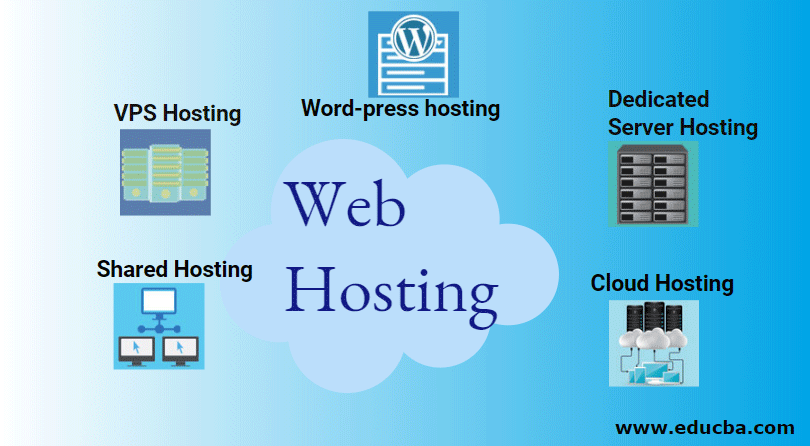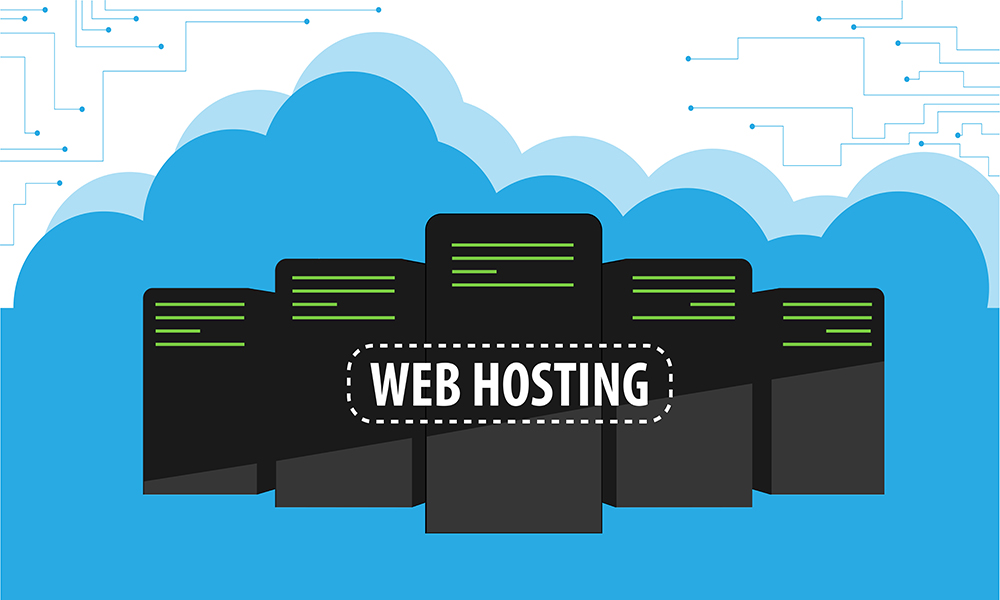Host website In today’s digital age, having a strong online presence is crucial for businesses and individuals alike. Whether you’re running an e-commerce store, a blog, or a portfolio website, one of the fundamental steps in establishing your online presence is hosting your website. In this guide, we’ll walk you through everything you need to know about hosting a website, from understanding the basics to optimizing performance and avoiding common pitfalls host website.
Introduction to Hosting a Website
What is web hosting?

Web hosting is a service that allows individuals and organizations to make their website accessible via the World Wide Web. Essentially, it involves renting space on a server where your website files are stored, ensuring that your website is available to users 24/7.
Importance of hosting for a website
Choosing the right hosting provider and plan is crucial for the success of your website. A reliable hosting service ensures that your website is accessible to users at all times, contributes to its overall performance and security, and plays a significant role in its search engine ranking.
Types of Web Hosting
Shared Hosting
Shared hosting involves hosting multiple websites on a single server, where resources such as CPU, disk space, and bandwidth are shared among users. It’s an affordable option suitable for small websites with moderate traffic host website.
VPS Hosting
Virtual Private Server (VPS) hosting offers a more scalable and customizable hosting environment by partitioning a physical server into multiple virtual servers. Each VPS operates independently, providing users with greater control and resources compared to shared hosting.
Dedicated Server Hosting
Dedicated server hosting provides users with exclusive access to an entire physical server, offering maximum performance, security, and customization options. It’s ideal for large websites with high traffic volumes and resource-intensive applications.
Cloud Hosting
Cloud hosting utilizes a network of interconnected servers to host websites, ensuring high availability and scalability. It offers flexibility and cost-effectiveness, allowing users to pay for only the resources they use.
Factors to Consider When Choosing a Hosting Provider
Web hosting server, host website, web host, website hosting, hostinger price, site web hosting.
Reliability and Uptime
The reliability of a hosting provider is paramount, as downtime can have detrimental effects on your website’s reputation and performance. Look for providers that guarantee high uptime percentages and offer reliable server infrastructure.
Server Speed and Performance
The speed and performance of your website are crucial factors that impact user experience and search engine ranking. Choose a hosting provider with fast server hardware, optimized software configurations, and robust network connectivity to ensure swift page load times.
Scalability
As your website grows and attracts more traffic, you’ll need a hosting provider that can scale resources accordingly. Opt for providers that offer scalable hosting solutions, allowing you to upgrade or downgrade your plan as needed without experiencing downtime.
Security Features
Protecting your website and sensitive data from cyber threats is paramount. Select a hosting provider that prioritizes security measures such as firewalls, DDoS protection, SSL certificates, and regular security updates to safeguard your website against potential attacks.
Customer Support
Responsive and knowledgeable customer support is essential for resolving technical issues and ensuring a smooth hosting experience. Choose a hosting provider that offers 24/7 customer support via multiple channels, such as live chat, phone, and email.
Steps to Host a Website

Choose a Domain Name
Selecting a memorable and relevant domain name is the first step in establishing your online identity. Choose a domain name that reflects your brand or website content and is easy to remember and type.
Select a Hosting Plan
Evaluate your website’s requirements and choose a hosting plan that aligns with your needs and budget. Consider factors such as server resources, performance, scalability, and additional features offered by the hosting provider.
Configure DNS Settings
After purchasing a domain name and hosting plan, you’ll need to configure the Domain Name System (DNS) settings to point your domain to your hosting server. This process involves updating DNS records with your hosting provider’s nameservers.
Upload Website Files
Once DNS settings are configured, you can upload your website files to the hosting server using FTP (File Transfer Protocol) or a web-based file manager provided by your hosting provider. Ensure that all necessary files, including HTML, CSS, JavaScript, and media assets, are transferred correctly.
Test the Website
Before making your website live, it’s essential to thoroughly test its functionality and performance. Check for broken links, missing images, and other issues across different browsers and devices to ensure a seamless user experience.
Tips for Optimizing Website Hosting
Regularly Monitor Website Performance
Monitor your website’s performance metrics, such as page load times, server response times, and uptime, using tools like Google Analytics and Pingdom. Identify areas for improvement and take proactive measures to optimize performance.
Utilize Content Delivery Networks (CDNs)
Content Delivery Networks (CDNs) cache static website content on servers located in various geographic locations worldwide, reducing latency and improving page load times for users across the globe. Integrate a CDN with your hosting infrastructure to deliver content faster to your audience.
Optimize Website Files and Images
Optimize your website files and images to reduce file sizes and improve loading speed. Use compression techniques, minification tools, and image optimization plugins to optimize content without compromising quality.
Implement Caching Mechanisms
Implement caching mechanisms such as browser caching, server-side caching, and content caching to store frequently accessed website data and deliver it to users more efficiently. Caching can significantly improve website performance and reduce server load.
Keep Software Updated
Regularly update your website’s software, including the content management system (CMS), plugins, themes, and server operating system, to patch security vulnerabilities and ensure compatibility with the latest web standards. Staying up-to-date helps protect your website from security threats and performance issues.
Common Mistakes to Avoid

Choosing the Wrong Hosting Plan
Selecting an inadequate hosting plan can lead to performance issues, downtime, and scalability constraints. Assess your website’s requirements carefully and choose a hosting plan that offers the necessary resources and features to support your growth.
Ignoring Security Measures
Neglecting security measures puts your website at risk of cyber attacks, data breaches, and malware infections. Implement robust security measures such as SSL encryption, firewall protection, and regular security audits to safeguard your website and user data.
Neglecting Backup Procedures
Failure to regularly backup your website files and databases can result in irreversible data loss in the event of server failures, hacking incidents, or accidental deletions. Set up automated backup procedures and store backups in secure offsite locations to ensure data integrity and quick recovery.
Overlooking Scalability
Ignoring scalability considerations can hinder your website’s ability to accommodate sudden traffic spikes and growth opportunities. Choose a hosting provider that offers scalable hosting solutions and plan ahead for future resource requirements to avoid performance bottlenecks.
Conclusion
Hosting your website is a critical step in establishing your online presence and reaching your target audience. By choosing a reliable hosting provider and implementing best practices for performance optimization and security, you can ensure that your website remains accessible, fast, and secure, contributing to its success and longevity on the web.
FAQs
- What is the difference between shared hosting and VPS hosting? Shared hosting involves hosting multiple websites on a single server and sharing resources, whereas VPS hosting provides users with dedicated resources within a virtualized environment.
- Can I change my hosting plan later if needed? Yes, most hosting providers offer the flexibility to upgrade or downgrade your hosting plan based on your changing requirements.
- How does server location affect website performance? The proximity of the server to your target audience affects website loading times. Choosing a server location closer to your users reduces latency and improves page load speed.
- What security measures should I look for in a hosting provider? Look for hosting providers that offer SSL encryption, firewall protection, DDoS mitigation, regular security updates, and malware scanning to ensure the security of your website and data.
- Is it possible to host multiple websites on a single hosting plan? Yes, many hosting plans allow you to host multiple websites on a single account, provided you have sufficient resources and domain allocations.
